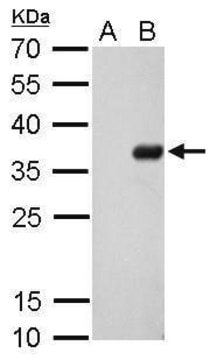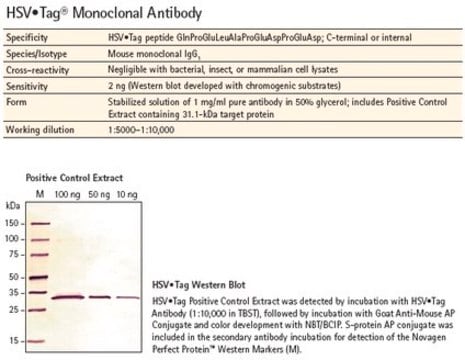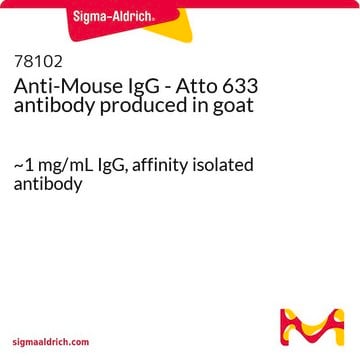SAB2702204
Monoclonal Anti-S Tag antibody produced in mouse
clone GT247, affinity isolated antibody
Sinónimos:
Anti-KETAAAKFERQHMDS tag, Anti-S peptide, Anti-S peptide epitope tag
About This Item
Productos recomendados
biological source
mouse
Quality Level
conjugate
unconjugated
antibody form
affinity isolated antibody
antibody product type
primary antibodies
clone
GT247, monoclonal
form
buffered aqueous solution
species reactivity
human
concentration
1mg/mL
technique(s)
immunoprecipitation (IP): suitable
western blot: 1000-10000
isotype
IgG2b
shipped in
wet ice
storage temp.
−20°C
target post-translational modification
unmodified
Categorías relacionadas
General description
Immunogen
Application
Features and Benefits
Other Notes
Physical form
Disclaimer
¿No encuentra el producto adecuado?
Pruebe nuestro Herramienta de selección de productos.
Storage Class
12 - Non Combustible Liquids
wgk_germany
nwg
flash_point_f
Not applicable
flash_point_c
Not applicable
Certificados de análisis (COA)
Busque Certificados de análisis (COA) introduciendo el número de lote del producto. Los números de lote se encuentran en la etiqueta del producto después de las palabras «Lot» o «Batch»
¿Ya tiene este producto?
Encuentre la documentación para los productos que ha comprado recientemente en la Biblioteca de documentos.
Nuestro equipo de científicos tiene experiencia en todas las áreas de investigación: Ciencias de la vida, Ciencia de los materiales, Síntesis química, Cromatografía, Analítica y muchas otras.
Póngase en contacto con el Servicio técnico








